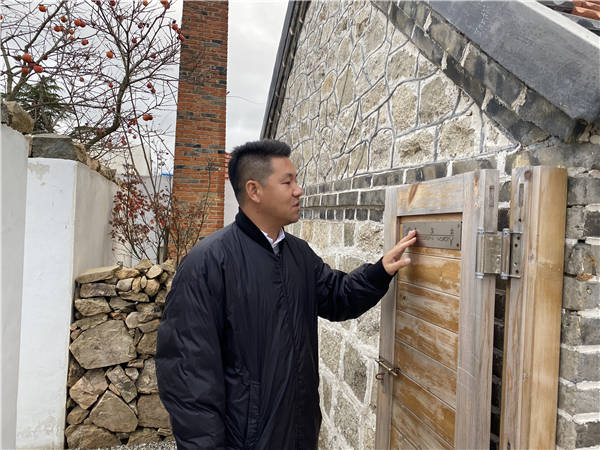 |
|
Li Jiutai, who got his doctorate from Tsinghua, stands outside a village house he helped to design and renovate. [Photo by Zhao Ruixue/China Daily] |
Many students have volunteered to join in the rural development in different ways, Han says.
In late November, three students from the School of Civil Engineering, the School of Architecture and the School of Humanities at Tsinghua shared stories of the lives and studies with senior middle school students in the town.
"Education plays an important role in rural revitalization in the long run. We are planning to host more activities with the university to expand students' horizons," says Liu.
"Our stations of rural revitalization are open and long-term projects with public interest at their hearts. With the stations, we hope to attract more teachers and students, alumni and alumna, social organizations and other schools' teachers and students to join us in revitalizing the rural areas," says Han.
The Wendeng station creates a new working scheme which features three sides representing the university, the university's alumni and alumna, as well as the local side, in bid to respectively coordinate and combine their resources into serving the revitalization of the local rural area.
Li Jiutai, who obtained a doctorate from the School of Architecture at Tsinghua, has been selected as the representative of the local side for his achievements in promoting the local development of Dashuipo over the past two years.
"The station gathers more high-end talent, which will have a far-reaching significance in promoting rural development because they will bring ideas and technologies," says Li, 40.
Two years ago, when Tsinghua and the local government signed an agreement to build a base at Dashuipo, Li Jiutai had already started a Design Valley project at the town's Chujia village.